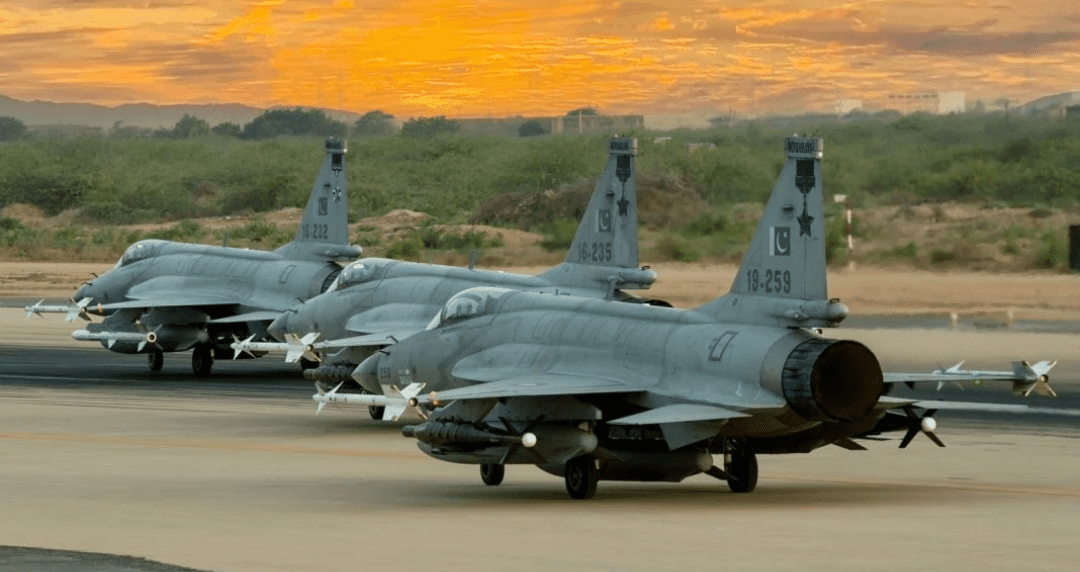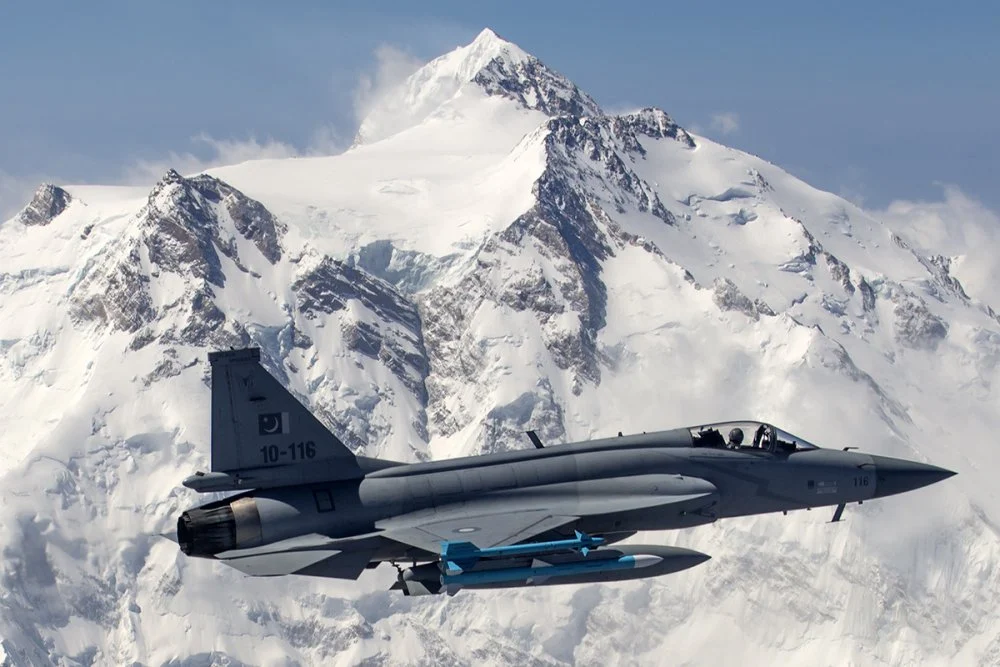Pakistan Establishes Second Squadron of JF-17 “Thunder” Block 3 Fighters
The Pakistan Air Force aims to enhance the operational capabilities of JF-17 "Thunder" and J-10C "Mighty Dragon" fighter aircrafts following its decision to retire aging aircraft such as Mirage III and Mirage V.
(DEFENCE SECURITY ASIA) — Pakistan Air Force is set to establish a second squadron utilising the latest variant of the JF-17 “Thunder” Block 3 fighter aircrafts, operating from an airbase in Karachi.
Defense media in Pakistan reported that the JF-17 Block 3 squadron will re-establish the previously disbanded No.8 “Haider” Squadron.
Previously, the Pakistan Air Force’s No. 8 Squadron “Haider,” was assigned to maritime strike missions and later transitioned to tactical strike missions using Mirage fighter aircraft since 1983.
Efforts to create and operate the second squadron of JF-17 Block 3 in Karachi are expected to be completed within the next few months.
The Pakistan Air Force aims to enhance the operational capabilities of JF-17 “Thunder” and J-10C “Mighty Dragon” fighter aircrafts following its decision to retire aging aircraft such as Mirage III and Mirage V.
Last week, the Pakistan Air Force deployed its JF-17 “Thunder” and J-10C “Vigorous Dragon” fighters for airstrikes against armed groups within Iran’s Sistan and Baluchistan region, located along the Pakistan-Iran border.

The airstrikes were in response to Tehran’s ballistic missile attacks on armed group positions inside Pakistan.
“The Pakistan Air Force conducted preemptive strikes against armed group positions in Iran using long-range standoff weapons, enabling them to bomb the targets even while within their own airspace.”
The JF-17 “Thunder” is jointly developed by the Pakistan Aeronautical Complex (PAC) and Chengdu Aircraft Industry Group (CAIG), while the J-10 “Mighty Dragon” is developed by CAIG.
By the end of this year or the next, the Pakistan Air Force is expected to possess approximately 50 JF-17 Block 3 aircraft, supplementing the existing 98 JF-17 Block 1 and Block 2 aircraft.
The JF-17 Block 3 is reported to incorporate fifth-generation aircraft technology, similar to China’s J-20 “Mighty Dragon.”
This latest variant is more modern and capable, equipped with fifth-generation fighter technology developed over the past two years.

Defense analysts in Pakistan describe the JF-17 Block 3 as a “game changer” in the country’s aerial competition with its traditional adversary, India.
Notable upgrades in the JF-17 Block 3 compared to the Block 2 include the inclusion of the Active Electronically Scanned Array (AESA) radar “KLJ-7A,” developed by China Electronics Technology Group.
Chinese military analysts claim that the KLJ-7A AESA radar is comparable to the AN/APG-81 radar on the U.S. fifth-generation fighter, the F-35, and the N036 phased array radar used by the Russian Su-57.
For air-to-air weaponry, the JF-17 Block 3 will be equipped with two guided missile types: the PL-10, also used by the modern Chinese J-20 “Mighty Dragon,” is a short-range guided missile comparable to the American AIM-9X.
Another air-to-air guided missile, the “PL-15,” with an operational range of 200 to 300 km, provides a significant advantage over Indian fighter aircraft’s air-to-air missiles. — DSA
To contact email: lulwabyadah@gmail.com


Comments are closed.